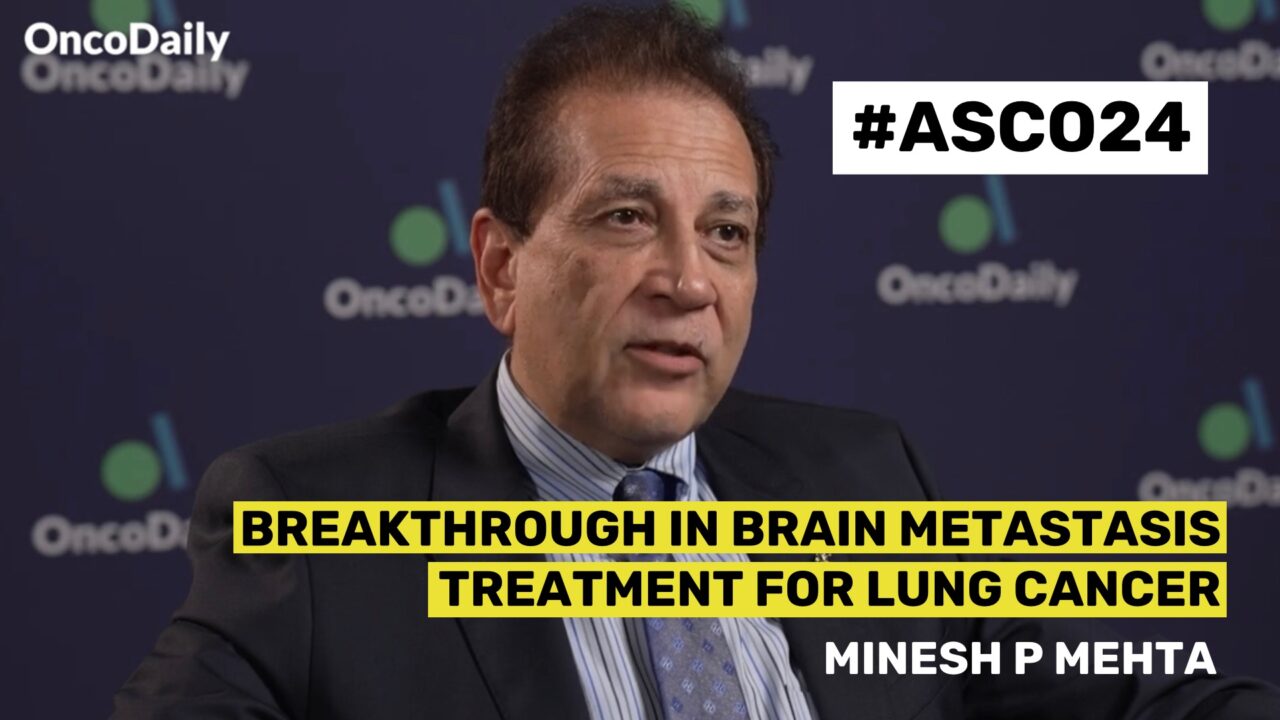The American Society of Clinical Oncology (ASCO) Annual Meeting is one of the largest and most prestigious conferences in the field of oncology. This year, the meeting took place from May 31 to June 4 in Chicago, Illinois. The event gathers oncologists, researchers, and healthcare professionals from around the world to discuss the latest advancements in cancer research, treatment, and patient care. Keynote sessions, research presentations, and panel discussions are typically part of the agenda, providing attendees with valuable insights into emerging trends and innovations in oncology.
This year, OncoDaily was at ASCO 2024 for the first time covering the meeting on-site. We had the pleasure of interviewing researchers who summarized the highlights of their work.
In this video, Dr. Minesh P Mehta, a radiation oncologist at Miami Cancer Institute, shared insights on ‘Results from METIS (EF-25), an international, multicenter phase III randomized study evaluating the efficacy and safety of tumor treating fields (TTFields) therapy in NSCLC patients with brain metastases.‘
My name is Minesh P Mehta. I’m a radiation oncologist at Miami Cancer Institute at Baptist Health South Florida. At this year’s ASCO meeting, I’m presenting the results of the EF25 METIS International Phase III Randomized Trial.
This trial was conducted in patients with non-small cell lung cancer with brain metastasis without actionable mutations. The standard of care for most of these patients is stereotactic radiosurgery. The trial randomized patients to the standard of care arm or the addition of tumor treating fields.
The goal of the study was to try and see if intracranial relapse in the brain could be reduced with the addition of tumor treating fields. The top line data that I’ll be presenting demonstrated a 10.6 month median time to improvement in time to intracranial relapse in the brain. In addition, the trial also demonstrated that the device was very well tolerated with very few, less than 3% grade three or greater toxicities.
And in addition, quality of life as measured by the ERTC QLQ30 tool, as well as the mapping of these tools to various functional domains, demonstrated greater time to functional independence and quality of life improvement in favor of tumor treating fields. So overall, the summary of the data is an improvement in time to relapse, an improvement in quality of life, safe and well tolerated, and this should be evaluated for future management of patients with non-sponsored lung cancer with brain metastasis.
More videos and content from ASCO 2024 on OncoDaily.


